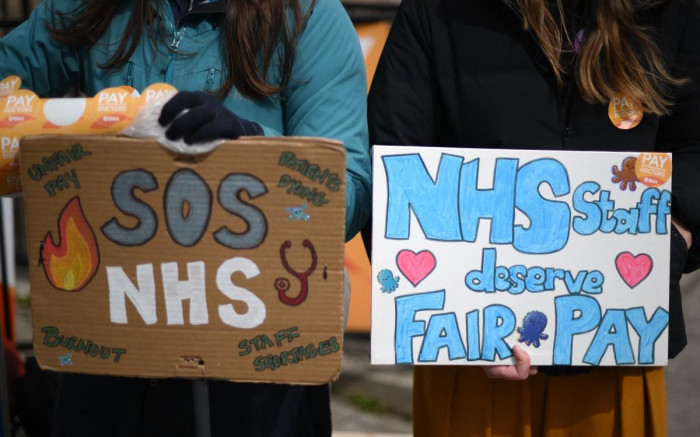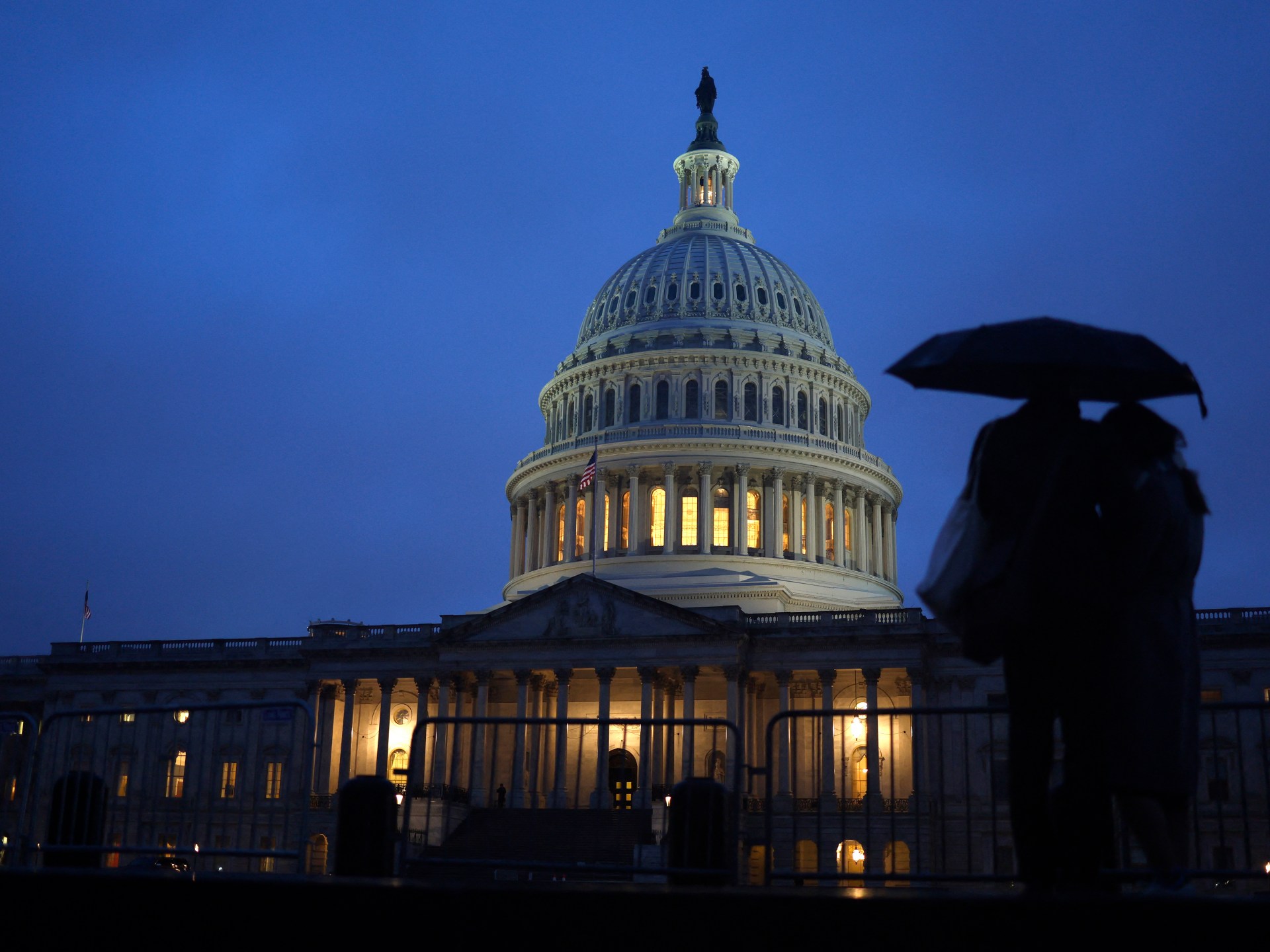
Young doctors began a six-day strike in a significant escalation of their long-standing pay dispute with the British government.
Junior doctors, those below specialist and consultant level, will go on strike from 07:00 GMT on January 3 to 07:00 GMT on January 9 in a protracted pay battle. Image: Daniel LEAL / AFP
LONDON – Hospital doctors in England began their longest consecutive strike on Wednesday in the seven-decade history of Britain’s National Health Service (NHS).
Junior doctors – doctors below consultant level – began a six-day strike, leading to a significant escalation in their long-running pay dispute with the British government.
The industrial action comes at one of the busiest times of the year for the state-funded NHS as it faces increased pressure from respiratory illnesses over the winter.
This was also followed by a three-day doctors’ strike shortly before Christmas.
The NHS said the latest shutdown, which could see up to half of medical staff on picket lines, would have a “significant impact on almost all routine care”.
“This January could be one of the most difficult starts to the year the NHS has ever faced,” said its national medical director, Stephen Powis.
The strike is due to end at 07:00 GMT next Tuesday.
The British Medical Association (BMA) announced the strike in December after talks with the government failed.
The union said junior doctors were offered a 3.0 percent pay increase on top of the average 8.8 percent increase at the start of the year.
She rejected the offer because the money would be distributed unevenly among the different levels of physicians and “would still amount to a pay cut for many physicians.”
Since March, junior doctors have gone on strike at least seven times.
Prime Minister Rishi Sunak and hospital bosses have criticized the move.
‘SIGNIFICANT’
Health policy is a devolved matter for the administrations in Scotland, Wales and Northern Ireland, with the UK government responsible for England.
Junior doctors in Wales will have to take a 72 hour break from January 15th.
The people of Northern Ireland have voted in favor of a possible strike.
Your Scottish counterparts have reached an agreement with the government in Edinburgh.
The NHS typically sees a rise in the number of hospital patients in the two weeks after Christmas as people delay seeking treatment in order to spend the festive period with loved ones.
The service is already facing huge wait times for appointments and operations, due to the postponement of treatment during Covid but also years of underfunding.
Julian Hartley, chief executive of NHS Providers, which represents hospital groups in England, said the impact of the strikes on patients was “significant”.
“The vast majority of planned operations, appointments etc will have to be put on hold,” he told BBC television.
Consultants will be in charge of junior doctors and emergency and emergency care such as maternity and intensive care services will be operational.
However, there are fears that Covid-19, flu and other seasonal illnesses could also have an impact on staffing levels.
“We are deeply concerned about the impact in the coming days,” Hartley said.






Recent Comments